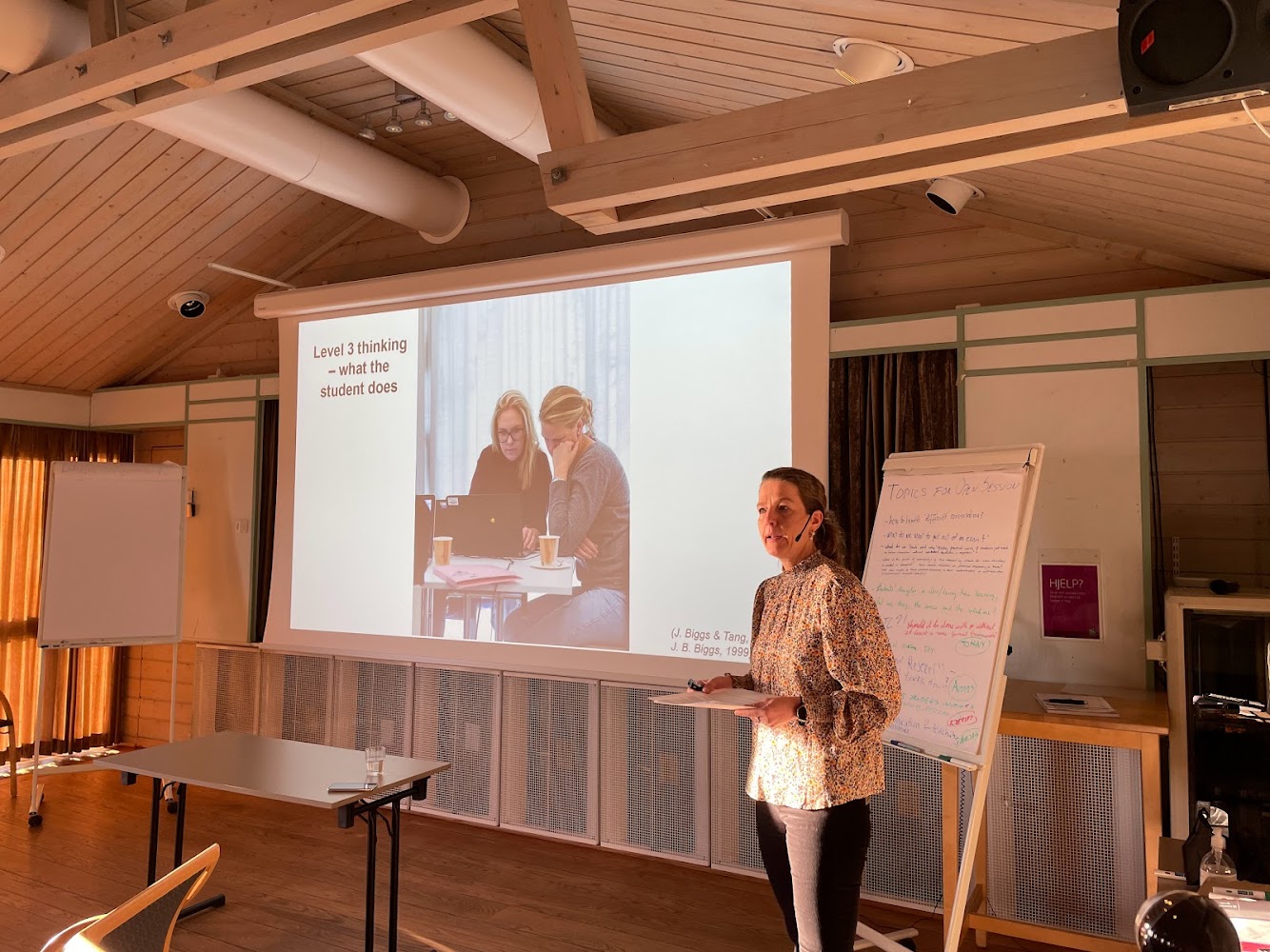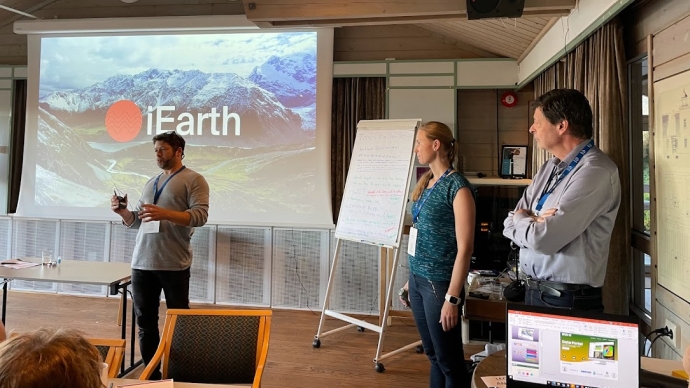We chose Hotel Leangkollen just outside Oslo as a convenient and welcoming venue (and the promise of free ice cream and popcorn didn’t hurt). On the sunny morning of the 21st of October, the 113 registered participants started arriving. This was not only a new record no. of participants for the Geolearning Forum (!), but also caused some temporary panic as we scrambled to accommodate all at the hotel. Thankfully, Thea, Kristian and our four iEarth students working as temporary conference helpers got everybody organised and settled in.

The first keynote speaker, Ilan Villanger, set the tone for the rest of the conference. He both talked about and embodied the spirit of MSHRL (for those who missed it: Met, Seen, Heard, Respected and Liked/Loved). No communication strategy is more effective than listening to and treating your interlocutor with respect. We spent the rest of the day in and out of group work, listening to and discussing ideas and suggestions from students and staff on how to improve teaching and learning.

In the evening, the conversations continued over a three-course meal, with a much-applauded thanks-for-dinner-speech by Bernd Etzelmüller. For many, the evening did not end until the bartender gave up and went home.
Tone Gregers opened Day 2. In her keynote, she shared her personal experiences as a university teacher. From all who had taught there were recognizing nods. From those who had only experienced teaching as students, there was new understanding of the teachers as actual persons. Many discussions during the coffee break revolved around personal emotional experiences with teaching, a rare topic for conversations between teachers and students. In this state of mind, we continued with workshops until it was time for the closing of the conference, and all were properly thanked to abundant applause.

Thinking back, Geolearning Forum 2021 was exceptional. Not only in the Antonio Samaranch sense (who proclaimed every Olympic Games as the best so far), but because for the first time, students and staff participated as partners. Students helped take responsibility for planning and running the conference, gave presentations and led workshops, participated in all the workshops, and made up nearly half of the participants. This was truly a transformation! Discussions about teaching and learning with both students and staff differ from those with only one group present, and bringing in more perspectives allows for new realisations and discoveries. Our experiences from Geolearning Forum 2021 only strengthens our conviction that students and staff working together is the way forward to even better teaching and learning!

Our thanks to all who participated, and welcome back next year! (Psst – and bring a friend =)
/Mattias Lundmark and Jostein Bakke
Some more photos below



